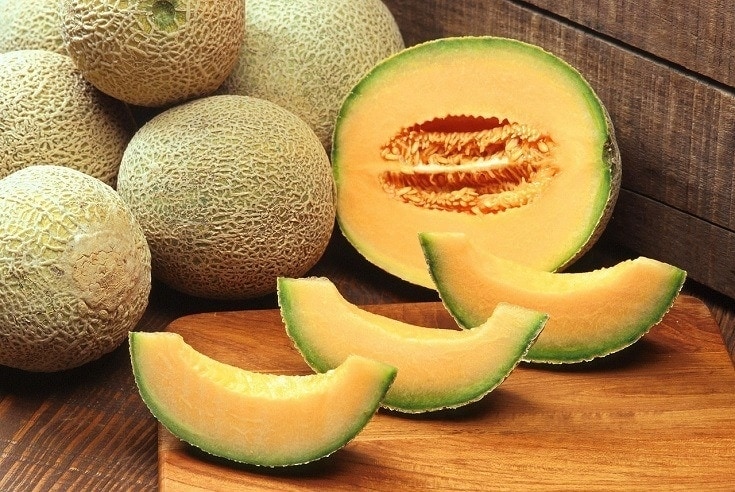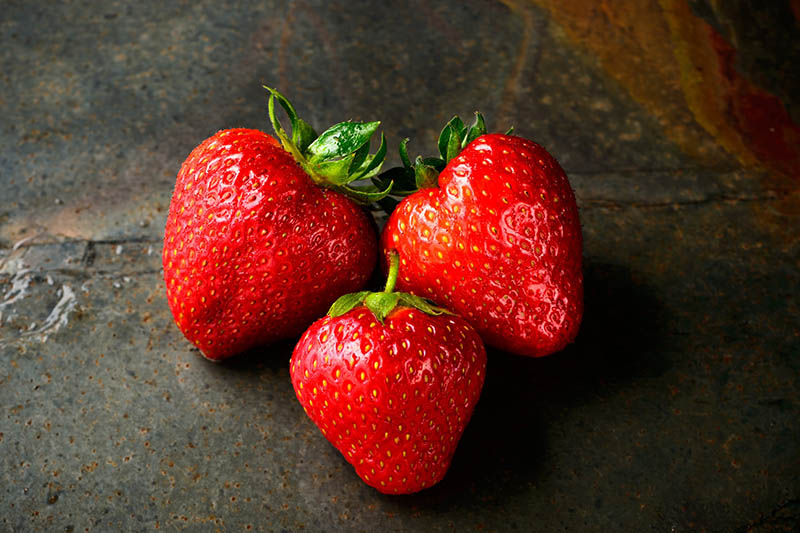Can Bearded Dragons Eat Honeydew? Vet-Approved Nutritional Facts & FAQ
Updated on
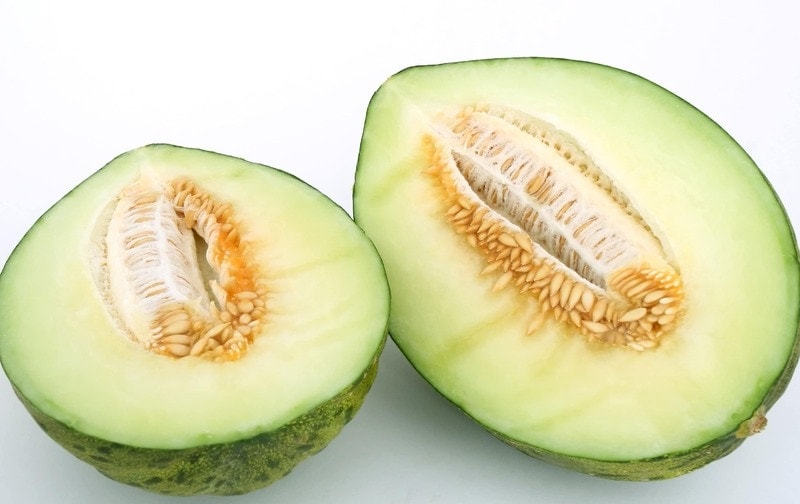
Click to Skip Ahead
Bearded dragons have become popular exotic pets to own. They are relatively easy to care for, and with proper care, they can live 10-15 years. They are easy to handle, docile, and entertaining, but you must provide a suitable terrarium and a proper diet to keep your bearded dragon healthy and happy.
Bearded dragons are omnivores and require a healthy mix of animal proteins and vegetables. They enjoy an array of foods—they even eat hibiscus flowers, dandelions, roses, carnations, and geraniums. They can have a little fruit, and one safe fruit you can feed is honeydew. However, only feed the flesh of the honeydew and avoid the rind and seeds, as they can be choking hazards.
In this post, we’ll discuss what a proper diet is for a bearded dragon, along with other nutritional information and foods to avoid.
So, Can Bearded Dragons Eat Honeydew?
Yes, bearded dragons can have honeydew, but only in moderation and without the rind and seeds. Honeydew is not toxic to bearded dragons, but you should only provide it once or twice a month.
Bearded dragons love the taste of fruit but due to its high sugar content, it should only be fed in moderation. In fact, you shouldn’t feed your beardie fruits every single day, and fruits should only account for roughly 5-10% of the diet on the days you provide them.
Another reason for feeding honeydew so sparingly is the disproportionate calcium-to-phosphorus ratio. The required calcium-to-phosphorus ratio for an adult is 2:1 whereas honeydew contains more phosphorus than calcium. The high water content of this melon can also cause issues—too much water can cause your bearded dragon to develop diarrhea. Honeydew will provide your bearded dragon with some nutrients when you feed it, but do so sparingly as an occasional treat.
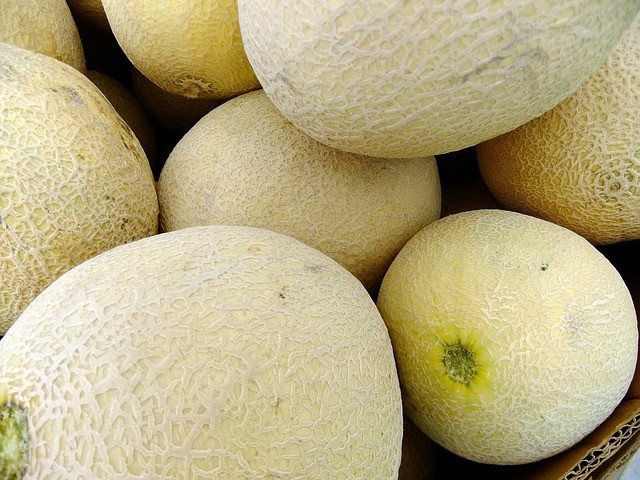
What Fruits Should I Avoid Giving My Bearded Dragon?
Not all fruits are safe for bearded dragons to consume, and some are downright toxic. For your beardie’s safety and health, avoid giving him oranges, limes, or lemons. The acidity in these citrus fruits can irritate the tummy and cause gastrointestinal issues, such as diarrhea.
What’s an Appropriate Diet for a Bearded Dragon?
Bearded dragons are omnivores, meaning they eat both plants and animals and one of the keys to keeping them happy and healthy is a varied diet.
Recommendations of the plant to live food ratio vary depending on your bearded dragon’s age and other factors. It’s best to work with your vet to find the best ratio for your pet, but in general young growing beardies require more animal matter than adults who eat more plant material. Also speak to your vet about appropriate calcium supplements.
Below are some food sources your beardie can enjoy. Rotating different foods is important so your beardie gets the nutritional benefits from a range of food sources and it keeps their diet interesting.
1. Protein Sources
Beardies love live insects, and they are an excellent source of protein. However, it’s recommended to buy live bugs from a reputable pet store to avoid possible sickness from pesticides. Here is a rundown list of suitable foods your beardie will love.

2. Live Insects
- Butterworms
- Crickets
- Dubia roaches
- Earthworms
- Mealworms
- Redworms
- Silkworms
- Superworms
- Waxworms
3. Vegetables
- Acorn squash
- Artichoke heart
- Asparagus (raw)
- Bell peppers (raw)
- Butternut squash
- Cabbage
- Carrots
- Celery
- Chicory
- Cilantro
- Collard greens
- Cucumber (peeled)
- Dandelion greens
- Endive
- Green beans
- Kale
- Mustard greens
- Parsley
- Pumpkin
- Spaghetti squash
- Yellow squash
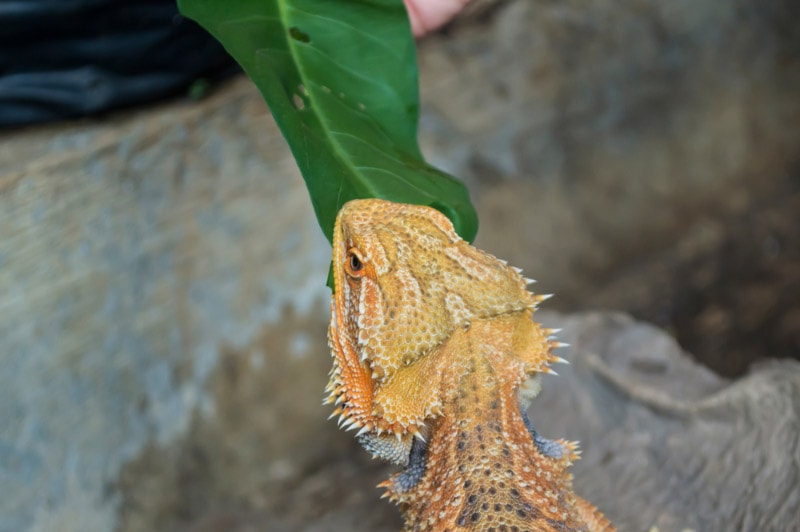
4. Fruits
In addition to honeydew, Beardies can safely eat other fruits, but remember that fruits should only account for roughly 5-10% of your beardie’s diet. It’s advised to cut the fruit into bite-sized pieces to make it easier for your beardie to eat and digest.
- Apples (peeled, no seeds)
- Apricot
- Bananas
- Blueberries
- Cantaloupe
- Cherries
- Figs
- Grapes
- Honeydew (once or twice a month)
- Kiwi (peeled)
- Mangos
- Peaches
- Papaya
- Pineapple
- Raspberries
- Strawberries
- Watermelon
Conclusion
Bearded dragons make fun and exciting pets, but you must learn how to feed your beardie appropriately for his health. The omnivorous bearded dragon requires insects and plant material, with fruits on the back burner, meaning you shouldn’t feed your bearded dragon fruit every day. However, these reptiles can safely enjoy fruit, including honeydew, in moderation.
Featured Image credit: Pixnio


